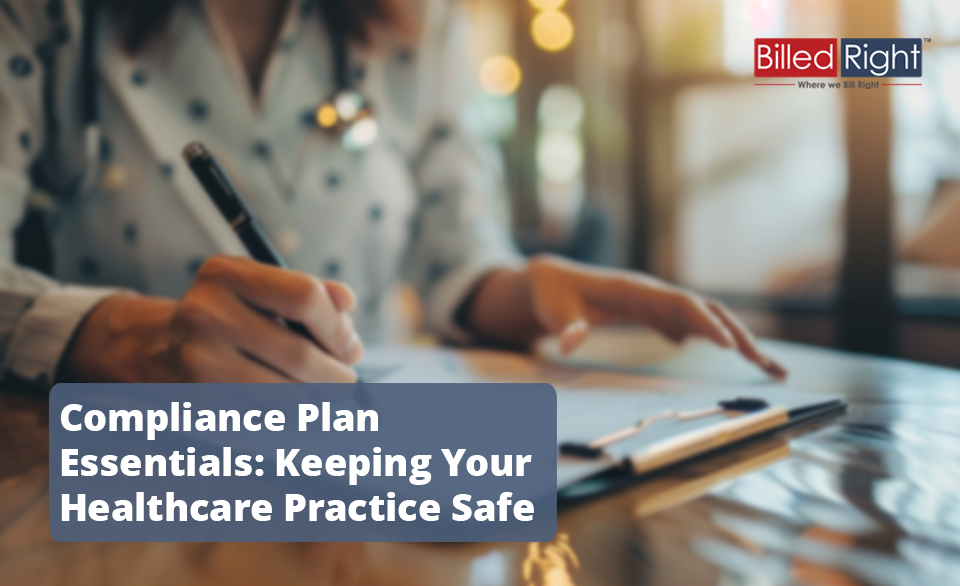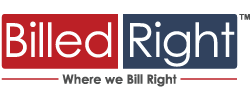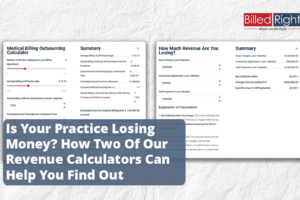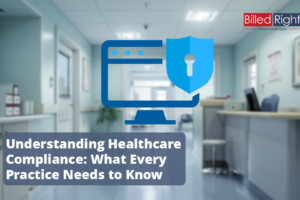Compliance Plan Essentials: Keeping Your Healthcare Practice Safe

Healthcare compliance isn’t just about following regulations—it’s about ensuring the safety of your practice, your staff, and, most importantly, your patients.
Compliance protects your practice from legal risks, financial penalties, and reputational damage. Maintaining a compliant practice is essential for long-term success and stability in an industry governed by strict regulations. This blog is the start of a new healthcare compliance series, where we’ll guide you through the key aspects of building and maintaining a strong compliance program. By following these steps, your practice can remain safe, secure, and successful in an increasingly complex regulatory environment.
What is a Compliance Plan?
A compliance plan is a comprehensive framework that outlines the processes and procedures a healthcare practice must follow to adhere to legal and ethical standards. It encompasses everything from patient privacy under HIPAA to accurate billing under Medicare and Medicaid regulations. The key components of a compliance plan include:
- Compliance Program Policies: Clear policies that reflect legal requirements and align with best practices.
- Training and Education: Regular training programs for staff to ensure everyone understands their roles and responsibilities in maintaining compliance.
- Internal Monitoring and Auditing: Ongoing reviews of processes to detect and correct non-compliance before it becomes a larger issue.
- Reporting Systems: Confidential and accessible ways for staff to report potential compliance violations.
Why Compliance Plans Are Essential
Compliance plans are essential because they help mitigate risks and prevent costly mistakes. Proactively addressing regulatory requirements reduces the likelihood of penalties, fines, and legal issues that could jeopardize your practice. Additionally, having a robust compliance plan improves patient trust and confidence in your practice, as they know you are committed to following ethical and legal standards. Compliance also protects your staff by creating a safe work environment, free from the dangers of misconduct or negligence.
The Centers for Medicare & Medicaid Services (CMS) emphasize the critical role compliance plays in maintaining the integrity of healthcare practices. Learn more about why compliance matters here.
Steps to Develop a Compliance Plan
Developing an effective compliance plan requires a systematic approach:
- Assess Your Current Practices: Conduct a risk assessment to identify areas of non-compliance or potential vulnerabilities.
- Appoint a Compliance Officer or Committee: Assign a dedicated individual or team to oversee the development, implementation, and enforcement of the compliance plan.
- Establish Policies and Procedures: Write detailed policies that address key areas of compliance such as patient privacy, billing practices, and employee conduct.
- Provide Comprehensive Training: Educate all staff on their compliance responsibilities through regular training sessions.
- Implement Monitoring Systems: Regularly audit your practices to ensure compliance with established policies.
- Create a Reporting System: Allow staff to report violations confidentially and without fear of retaliation.
Ensuring Compliance with Regulations
Healthcare regulations are constantly evolving, making it essential to stay updated on changes that affect your practice. This requires:
- Regular Review of Regulatory Updates: Subscribe to industry newsletters, attend webinars, and consult with legal experts to stay informed on regulatory changes.
- Updating Your Compliance Plan: Ensure that your compliance plan evolves alongside new regulations by regularly revisiting and revising your policies.
- Continuous Training: Schedule periodic training sessions to update staff on regulatory changes and new compliance protocols.
Importance of Compliance Plans
A well-developed compliance plan is not just a safeguard against fines and penalties; it is a critical component in ensuring the overall safety and success of your practice. By following these guidelines, you will create a culture of compliance that protects your practice from legal and financial risks while improving patient care.
To ensure your practice remains aligned with federal healthcare regulations, the U.S. Department of Health and Human Services (HHS) provides comprehensive compliance information here.
This post marks the beginning of our healthcare compliance series. Stay tuned for upcoming articles that will dive deeper into specific compliance challenges, checklists, and best practices to keep your healthcare practice safe and compliant in 2024 and beyond.







